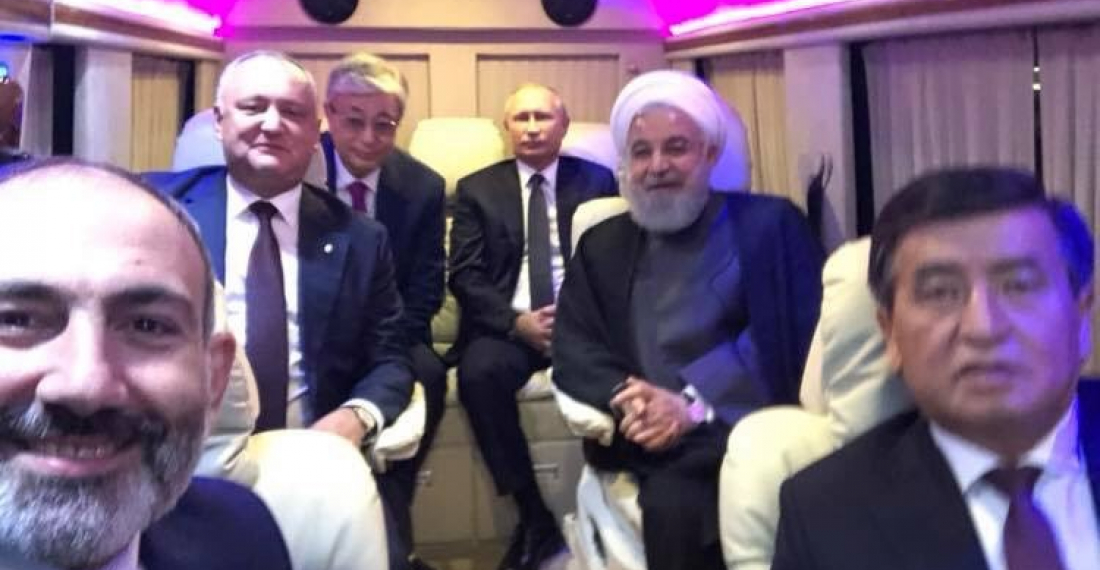This analysis has been prepared by the research team of commonspace.eu
Russia has all the hard and soft power tools necessary to influence events in the South Caucasus, but may not want to use them to intervene in the current conflict just yet.
One of the most intriguing aspects of the current crisis in the South Caucasus is the role that Russia is playing. Russia has a long, intricate, complicated, and not always honourable history of relations with the South Caucasus region. It has in the region all the tools of soft and hard power that one would expect from an ex imperial power that has never properly left, nor shown any intention of leaving. Russia has an important military base in Armenia, apart from troops in the Georgian separatist regions of Abkhazia and South Ossetia. Its has extensive economic leverages and influence on the political elites. On Nagorno-Karabakh it has been a co-chair of the OSCE Minsk process mandated to negotiate a solution to the conflict, since 1992. It plays its role in that process like a violin - sometimes acting unilaterally, sometimes in perfect harmony with the other two co-chair countries - France and the United States. Russia wants to safeguard its privileged position in the region, and as much as possible, keep everyone else - but especially NATO, the EU and the US - out.
On previous occasions, when violence escalated and the sides in the Karabakh conflict clashed militarily, Russia moved decisively to bring the sides together and negotiate a cease fire. This time it seems that either Russia can't, or it won't.
The Russian analysis of the military situation is that neither Armenia nor Azerbaijan has enough military superiority to register a decisive victory. So the sides may continue fighting for some time without anything changing very much. This time round however there appears to be a wild-card in the equation, in the form of Turkey. Turkey has long expressed verbal support for Azerbaijan, but its support this time round has been much louder. Whether behind this is also tangible military support is now a cause for speculation. Armenia says Turkish troops and equipment are in Azerbaijan supporting Baku's efforts. Baku says this is not true. In any case Russia knows it now has to take Turkey also into consideration.
The Russian position so far has been to try to stay neutral between Armenia and Azerbaijan. This is a bit complicated given that Armenia is a military ally, a member of the Russia-led CSTO military organisation, and the Russia-led economic bloc, the EEAS. Traditionally, Armenian political and strategic thinking has been based on the assumption that in the last resort, Russia will back it if in danger. Russia seems to think that that last resort is not now yet. As long as fighting is contained in the Nagorno-Karabakh conflict zone - territory that internationally is recognised as belonging to Azerbaijan at least juridically - Russia can excuse itself from coming to its ally support. If that changes, pressure on Moscow to back Armenia or lose face will be high.
Russia has so far snubbed Turkish efforts to come up with a joint Turkish-Russian initiative to stop the fighting. The Chairman of the Russian Federation Council's Committee on Foreign Affairs Konstantin Kosachev told Izvestia. "Turkey is not neutral, its multilateral participation seems unnecessary and will strengthen one of the parties to the conflict. So, the goal is not to support, but to galvanize a rapprochement and find points of contact. This is only possible with the participation of neutral intermediaries. Therefore, Russia is needed in this format," the lawmaker stressed.
So for the moment Russia remains neutral, at least overtly. Tomorrow (Thursday, 1 October) by coincidence, Russia also takes over the chairmanship of the UN Security Council for one month. That gives it an additional opportunity to manoeuvre the diplomacy around this issue. But Russia's immediate objectives now appear clear: (a) ensure no one side wins or loses; (b) keep outside parties out of the story; (c) maintain enough flexibility to appear as an honest broker; (d) move to a cease fire as soon as practical and hope everything will be back as usual. This scenario however may not suit either or both sides, and Russia may realise it is less in control of the process than it thought.
source: This analysis has been prepared by the research team of commonspace.eu
Photo: President Putin joined other EEAU leaders at a summit in ally Armenia last year (picture courtesy of the facebook feed of prime minister Nikol Pashinyan)






